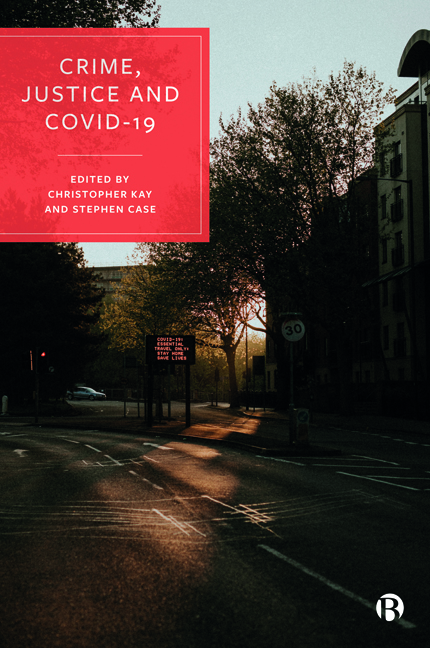5 - COVID-19 in Custody: Responding to Pandemics in Prisons in England and Wales
Published online by Cambridge University Press: 20 January 2024
Summary
Introduction
The introduction of the first cases of COVID-19 in England and Wales saw a sudden and significant strain placed on a range of public services, with general practitioner surgeries, hospitals, schools, adult social care and others having to adapt quickly to life with the virus. While the impact of the pandemic on such services cannot be denied, the virus also posed a ‘very real threat … to our other, often unfairly overlooked, frontline service: our prisons’ (Neill, 2020). This chapter focuses on the impact of the first two waves of the COVID-19 pandemic on the prison system in England and Wales. Through an analysis of epidemiological and criminological evidence alongside policy literature, it highlights the impact of the pandemic itself on prison residents and the ways in which COVID-19 policy and practice affected prison life. From here, it identifies a series of lessons around the ways pandemics are managed in the prison system and provides recommendations for how future pandemics might be managed. In doing so, the chapter provides a detailed account of pandemic management within the prison system itself and considers the dichotomy that exists between populist penal politics and public health more generally.
The problem: pandemics in prison
The first two cases of COVID-19 in the prison system in England and Wales were reported by HMP Manchester in early March 2020, and as happened with transmission in the general population, the virus spread quickly throughout the prison estate (Jarvis, 2020). Figures from the Prison Reform Trust (PRT) show that roughly one month after the identification of the first two cases, there were over 500 confirmed cases, both prison staff and residents, spread over 67 prisons (PRT, 2020). This figure is likely to be a significant underrepresentation given that only symptomatic infection was being tested at the time (Rice et al, 2021), and that was largely dependent on the availability of testing facilities. Indeed, such was the variability of access to testing across the estate that by April 2020 there were 227 laboratory-confirmed cases among residents, but 1,385 ‘possible/probable cases’ (O’Moore, 2020: 3).
- Type
- Chapter
- Information
- Crime, Justice and COVID-19 , pp. 76 - 106Publisher: Bristol University PressPrint publication year: 2023

